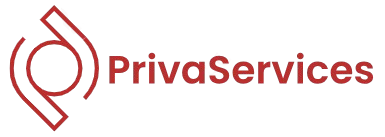Unlocking Success: A Deep Dive into Goal-Setting Strategies
Goals are the building blocks of success, guiding us towards our aspirations and dreams. Whether in personal development, career advancement, or business growth, setting clear and achievable goals is crucial for progress. However, the process of goal-setting is more than just jotting down a list of objectives; it involves strategic planning, self-reflection, and determination. In this comprehensive guide, we will explore the intricate world of goal-setting strategies, uncovering the secrets to setting goals that propel us towards greatness.
The Psychology Behind Goal-Setting

Goal-setting is deeply rooted in psychology, tapping into our innate desire for growth and achievement. Psychologist Edwin Locke introduced the concept of goal-setting theory, highlighting the importance of setting specific and challenging goals to enhance motivation and performance. When we set clear objectives, our brains are wired to focus on achieving them, driving us to take action and overcome obstacles.
Research has shown that setting goals not only improves performance but also boosts our self-esteem and overall well-being. By setting realistic yet ambitious goals, individuals can experience a sense of accomplishment and progress, fueling their drive to reach even greater heights. The power of goal-setting lies in its ability to transform abstract dreams into concrete realities, providing a roadmap for success.
The SMART Approach to Goal-Setting

One of the most popular and effective goal-setting strategies is the SMART framework. SMART stands for Specific, Measurable, Achievable, Relevant, and Time-bound, offering a structured approach to setting and achieving goals. Let’s break down each component of the SMART criteria:
- Specific: Goals should be clear, concise, and well-defined. Instead of setting a vague goal like “get in shape,” a specific goal would be “lose 10 pounds in three months.”
- Measurable: Goals should have quantifiable metrics to track progress and success. Measuring progress allows individuals to stay on course and make adjustments as needed.
- Achievable: Goals should be challenging yet attainable. Setting unrealistic goals can lead to frustration and demotivation. It’s important to strike a balance between ambition and feasibility.
- Relevant: Goals should align with your values, priorities, and long-term aspirations. Setting goals that are meaningful to you increases your motivation and commitment to achieving them.
- Time-bound: Goals should have a deadline or timeframe for completion. Setting a deadline creates a sense of urgency and helps you prioritize your tasks effectively.
By applying the SMART criteria to your goal-setting process, you can create goals that are clear, actionable, and impactful. Whether you’re aiming to advance in your career, improve your health, or enhance your skills, the SMART approach can guide you towards success.
Setting Stretch Goals

While the SMART framework encourages setting realistic goals, there is also value in setting stretch goals that push your boundaries and expand your capabilities. Stretch goals are ambitious objectives that may seem beyond reach but have the potential to drive innovation and growth.
Research has shown that setting stretch goals can lead to higher performance levels and increased creativity. When individuals strive for goals that are challenging and unconventional, they are motivated to think outside the box and explore new possibilities. Stretch goals encourage a growth mindset, fostering resilience and adaptability in the face of challenges.
However, it is essential to approach stretch goals with caution, ensuring that they are aligned with your capabilities and resources. Setting unrealistic stretch goals can backfire, leading to burnout and disappointment. By combining stretch goals with the SMART criteria, you can strike a balance between ambition and achievability, unlocking your full potential.
Overcoming Obstacles and Roadblocks

Goal-setting is not without its challenges, and it’s common to encounter obstacles along the way. From procrastination and self-doubt to external factors like time constraints and lack of resources, there are various roadblocks that can hinder progress towards your goals. To overcome these obstacles, it’s essential to develop resilience, perseverance, and a proactive mindset.
One effective strategy for overcoming obstacles is to break down your goals into smaller, manageable tasks. By focusing on incremental progress and celebrating small wins, you can build momentum and stay motivated throughout your journey. Additionally, seeking support from mentors, peers, or a coach can provide valuable guidance and accountability, helping you navigate challenges and stay on track.
Self-reflection and self-awareness are also key to overcoming obstacles in goal-setting. By identifying your strengths, weaknesses, and limiting beliefs, you can develop strategies to address them and cultivate a growth mindset. Embracing setbacks as learning opportunities and staying committed to your goals, even in the face of adversity, can propel you towards success.
Goal-Setting in Different Contexts
Goal-setting is a versatile tool that can be applied to various aspects of life, from personal development to business management. Let’s explore how goal-setting strategies differ across different contexts:
Personal Development:
In personal development, goal-setting plays a crucial role in self-improvement and growth. Whether you’re aiming to learn a new skill, cultivate a healthy habit, or pursue a passion project, setting personal goals can provide direction and motivation. By reflecting on your values, interests, and aspirations, you can set meaningful goals that align with your personal vision and values.
Career Advancement:
In the professional realm, goal-setting is essential for career advancement and success. Setting career goals can help you progress in your current role, explore new opportunities, and advance your skillset. Whether you’re aiming for a promotion, launching a business, or transitioning to a new industry, setting career goals can guide your career trajectory and propel you towards your aspirations.
Business Growth:
In the business world, goal-setting is a fundamental aspect of strategic planning and organizational success. Setting business goals can help you define your vision, mission, and objectives, aligning your team towards a common purpose. Whether you’re striving to increase revenue, expand your market share, or enhance customer satisfaction, setting business goals can guide your strategic decisions and drive growth.
Common Misconceptions About Goal-Setting
Despite the benefits of goal-setting, there are several misconceptions that can hinder its effectiveness. Let’s debunk some common myths about goal-setting:
- Goals Should Be Set in Stone: While it’s essential to set clear goals, it’s also important to be flexible and adaptable. Circumstances may change, and it’s okay to adjust your goals as needed to stay aligned with your vision.
- Goals Should Be Achieved Quickly: Achieving goals takes time and effort, and it’s essential to be patient and persistent. Rome wasn’t built in a day, and great accomplishments require dedication and perseverance.
- Goals Should Be Kept Private: Sharing your goals with others can provide accountability and support. By sharing your goals with trusted individuals, you can gain valuable feedback and encouragement along your journey.
Conclusion
To wrap things up, goal-setting is a powerful tool for personal and professional growth, guiding us towards our aspirations and dreams. By applying strategic goal-setting strategies such as the SMART framework, setting stretch goals, and overcoming obstacles, we can unlock our full potential and achieve greatness. Remember that goal-setting is not just about reaching the destination but also about enjoying the journey and embracing growth along the way. So, set your goals, stay focused, and watch yourself soar to new heights of success.
As the saying goes, “A goal without a plan is just a wish.” So, take the first step towards your goals today and embark on a transformative journey of self-discovery and achievement. Your future self will thank you for it!




